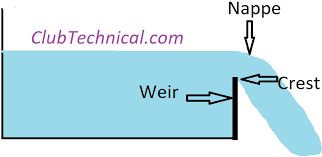Plastic Roads
- Plastic Roads are roads that are made completely of plastic or composites of plastic made with other materials.
- Difference between a Plastic Road and a standard road is that standard roads are made entirely of asphalt concrete, which consists of mineral aggregates and asphalt, where as plastic roads are made up of composites of plastic.
Plastic Roads are generally of two kinds.
- The first type of plastic road is made up of modular, hollow and prefabricated road elements made from waste consumer plastics.
- The other type of plastic road is made by Asphalt mix with waste plastic products incorporated into the asphalt mix.
How to Make Plastic Roads?
- The construction process of Plastic Roads varies as it is a relatively new idea.
- In Jamshedpur Plastic Roads are constructed from a mixture of plastic and bitumen.
- In Indonesia Plastic Roads are being made using a plastic-asphalt mix.
- Since Plastic Roads are made from recycled plastics, the first in constructing them is to collect and manage the plastic products.
- The plastic materials needed for building the Plastic Roads consist mainly of common post-consumer products such as packing of products.
- The most common plastic used in packing of products is Polyethylene terephthalate (PET or PETE), Polypropylene (PP), and high low density polyethene (HDPE and LDPE).
- The next step is sorting the collected waste plastic materials.
- After sorting the collected waste plastic products, the materials are cleaned, dried and shredded.
- Then the shredded plastic is melted at around 170 degree Celsius.
- In the melted plastic hot bitumen is added and mixed thoroughly.
- After the mixture of bitumen and plastic is laid on the road as one would with regular asphalt concrete.
Plastic Roads in India:
- India has built 21,000 miles of roads using waste plastic in December 2019. India has almost 33,700 km of plastic roads till now which means that every 1 km road uses 1 million plastic bags.
- The first city in India to globally adapt Plastic road technology was Chennai. Chennai municipality adapted this technology in a big way by commissioning 1000 km of Plastic roads in the year 2004.
- Since then many municipalities across India have experimented and implemented this technology such as Pune, Mumbai, Surat, Indore, Delhi, Lucknow, etc.
Advantages of Plastic Roads:
- Construction of Plastic road makes the roads stronger with increased Marshall Stability value.
- Construction of Plastic road gives roads better protection from rain water and prevents water stagnation.
- While construction of Plastic roads no stripping and potholes are needed.
- Plastic roads have increased binding and better bonding of the mixture components than regular asphalt roads.
- Plastic Roads have a reduction in pores of the aggregates, which leads to less rutting and ravelling.
- Plastic Roads have no effect of radiation like UV.
- The overall strength of Plastic Roads is increased by 100 percent.
- The property of withstanding load is increased in Plastic Roads. This feature helps in satisfying now a day’s need for increased road transports.
- For the construction of Plastic Roads of 1 km X 3.75 m, 1 ton plastic is used and 1 ton of bitumen is saved.
Disadvantages of Plastic Roads:
- The toxics present in the plastic wastes used in Plastic road construction would start leaching, which creates difficulty while cleaning.
- During the road laying process the mixture of asphalt and plastic will release noxious HCL gas in the presence of chlorine from the surrounding.
- After the laying of the Plastic road it is often found that the first rain will result in leaching, as the plastics will form a sticky layer over the surface of the road.
- The components of the Plastic road once it has been laid cannot be inert.







Comments
Post a Comment